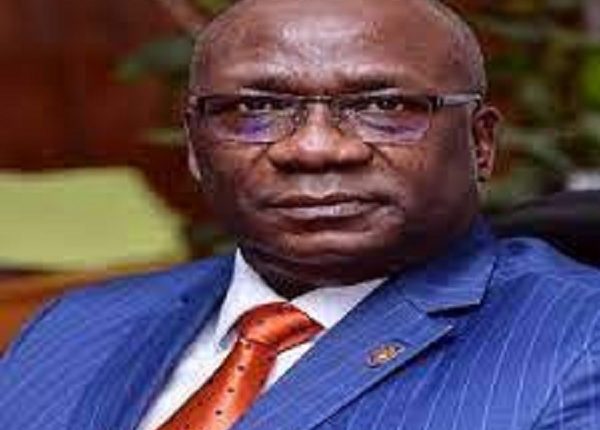The Permanent Secretary, Federal Ministry of Agriculture and Rural Development, Dr Ernest Umakhihe said Nigeria is running on a deficit of 2.2 million tons of fish which it depends on importation in order to close the gap.
Dr Umakhihe said the total demand for fish in Nigeria stands at 3.6 million tons annually, while it produces 1.1 million tons from all sources which include aquaculture, artisanal and industrial sector.
The Permanent Secretary disclosed this, on Thursday, at the Independent Dialogue on the Transformation and Future of Aquatic Food Systems in Nigeria held in Abuja.
He said 10 million Nigerians are actively engaged in primary and secondary fisheries operations, and the contribution of fisheries to the national Gross Domestic Product (GDP) is about 4.5 per cent.
He, however, said the vision of President Muhammadu Buhari is to grow Nigeria’s Agricultural Sector to achieve a hunger-free nation through Agriculture that drives income growth, accelerates food production to address the food and nutritional security, and transform Nigeria into a leading player in global food/fish market to reduce importation in a short, medium and long term basis.
“Permit me to mention that fish is one of the cheapest and predominant sources of animal protein in Nigeria. It accounts for about 50per cent of total animal protein consumed in Nigeria with per cent consumption of 17.5 Kg /person/year.
“In this regard, the total demand for fish is 3.6 million tons annually while Nigeria is producing 1.1million tons from all sources (Aquaculture, artisanal and Industrial sectors) leaving a deficit of about 2.5 million tons to be supplemented by importation,” he noted.
He said the Ministry has played a key role in addressing aquatic food systems in Nigeria which include “backward integration policy of the government to encourage fish importers to go into commercial aquaculture (pond and cage culture) of fish and shrimp farming.
“Establishment of fish farm clusters nationwide, the establishment of fish feed mills in each of the six (6) geo-political zones of the country, Lake enhancement programmes for stock assessment and stocking of water bodies nationwide to increase their productivity.
“Capacity building of farmers, extension workers, women and youth with the provision of starter packs for job and wealth creation, food and nutrition security.
“Establishment of cottage fish farms in Unity Secondary schools for entrepreneurship development, school feeding programme, targeted at the increase in protein intake to reduce malnutrition among students, and many others.”
In his Keynote Address, the Minister of Agriculture and Rural Development, Alhaji Mohammed Sabo Nanono said despite the potential impacts of the fisheries and aquaculture resources, the sector is however confronted with numerous challenges including the high cost of inputs and use of unimproved breeds in aquaculture.
Nanono said the ministry is willing to engage and partner with all stakeholders for the development of the sector for economic development, wealth and job creation as well as food and nutrition security.
“The aim of the dialogue is, therefore, to deepen our understanding of these challenges while also proffering noteworthy recommendations that would leverage aquatic food systems capacity to contribute to the attainment of SDGs in Nigeria in the coming years,” he said.
In his remark, Country Director, Global Alliance for Improved Nutrition (GAIN), Dr Michael Ojo said, Nigeria has seen significant growth in production over the past 18 years, but we still have a large supply deficit limiting access for consumers and potentially contributing to relatively high costs of aquatic foods.
Ojo said the factors that constrain the supply of safe and affordable fisheries products to meet consumer demand are multiple and reside at many different points in the supply chain.
“We have seen significant growth in production (10-fold over the 18 years from 2000), but we still have a large supply deficit limiting access for consumers and potentially contributing to relatively high costs of aquatic foods.
“Deficits in the availability of feed and fingerlings, poor or inadequate cold chain, poor harvesting and handling, financing, etc. are some of the documented bottlenecks along the supply chain that can compromise food safety, increase the price, and ultimately constrain distribution to consumers, particularly those in low-income markets.”
Source: Nigerian Tribune

